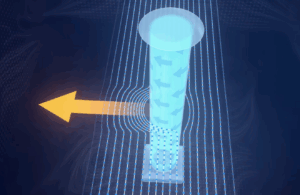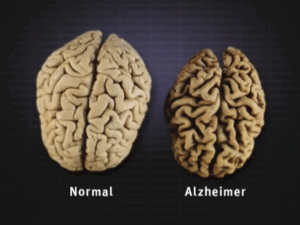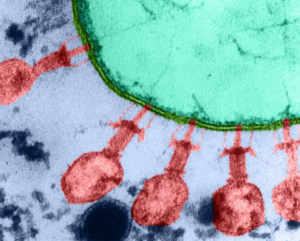How scientists use blood testing to diagnose patients for Alzheimer’s
Alzheimer’s is a neurological disease that affects nearly seven million people in the United States. But what exactly is it, and how do scientists diagnose this disease (1)?
Although scientists are not exactly sure what causes Alzheimer’s, they know the disease is the result of a buildup of harmful proteins in the brain, specifically amyloid beta and tau, which interfere with usual brain function. When amyloid beta proteins clump together, they form amyloid plaques that prevent communication between neurons (1). Although tau proteins usually transport nutrients throughout the brain, the excessive concentration of tau proteins caused by Alzheimer’s clumps into neurofibrillary tangles. These tangles disrupt both communication between neurons and the transportation of nutrients throughout the brain (1). Alzheimer’s results primarily in memory loss, but it can also cause loss of reasoning skills and changes in personality (1).
Alzheimer’s causes cell death in the brain.
While Alzheimer’s cannot be fully treated, there are medications that slow the progression of the disease. Patients must begin treatment quickly to mitigate the disease, so it is critical to detect the disease as soon as possible. Traditional diagnostic methods include testing cerebrospinal fluid and using PET imaging for amyloid beta and tau proteins. These tests are extremely accurate but can be inaccessible or have lengthy wait times (2). As such, researchers at C2N Diagnostics in St. Louis, Missouri, created a blood test last year that detects both amyloid beta and tau proteins. C2N’s blood test has an accuracy of about 90% (3). Researchers compared this blood test to traditional clinical screening without the cerebrospinal fluid testing or PET scan, which consisted of a physical examination, cognitive testing, and a CT scan of the brain. When performed by a specialist, these methods achieved a diagnostic accuracy of only 73%, and when performed in a primary care setting, 61% (3). Although the new blood tests cannot replace the highly accurate cerebrospinal fluid tests or PET scans, they are an accessible improvement on the current initial diagnostic screening.
A PET scan used to detect amyloid in the brain, a sign of Alzheimer’s.
The primary purpose of the blood tests is to reduce the time it takes patients to receive crucial Alzheimer’s medication. A 2024 USC study showed that, currently, it takes an average of nearly six years between a patient’s first Alzheimer’s screening to actually receiving their medication. This lag occurs because patients must meet with a limited number of specialists before their diagnosis can be confirmed (2). With C2N Diagnostics’ blood tests, it could take patients only 13 months to receive medication, as they would not need to meet with a specialist to be diagnosed (2). An earlier diagnosis and medication could greatly slow the progression of the disease.
However, the tests still have a few issues that need to be addressed. Because the tests are relatively new, they are not fully approved by the FDA and are not covered by insurance. The most recent and accurate test would cost patients $1,500 (4). Although they are highly accurate, blood tests can still give false positive and false negative results, which means patients will still need a cerebrospinal fluid test or PET scan to confirm their diagnosis (4). Hopefully, these issues will be resolved, either through improvements to the current tests or with the development of new ones. In Alzheimer’s care, testing and diagnosing are crucial. The development of new blood tests signals a new era in Alzheimer’s treatment that will impact millions.
Bibliography
- Alzheimer’s disease – Symptoms and causes. (2024). Mayo Clinic. Retrieved from https://www.mayoclinic.org/diseases-conditions/alzheimers-disease/symptoms-causes/syc-20350447.
- Alzheimer’s Blood Tests Could Improve Diagnosis. (2025). Alz.org. Retrieved from https://aaic.alz.org/releases-2024/blood-tests-alzheimers-biomarkers.asp.
- Accurate blood test for Alzheimer’s disease. (2024, August 13). National Institutes of Health (NIH). Retrieved from https://www.nih.gov/news-events/nih-research-matters/accurate-blood-test-alzheimer-s-disease.
- Smith, T. (2024, October 9). New blood tests for Alzheimer’s may allow for earlier detection of the terrible disease. But how much will Alzheimer’s blood tests cost, and who should get them? UCHealth Today. Retrieved from https://www.uchealth.org/today/new-blood-tests-for-alzheimers-may-allow-for-earlier-detection/.
Images












Comments are closed.